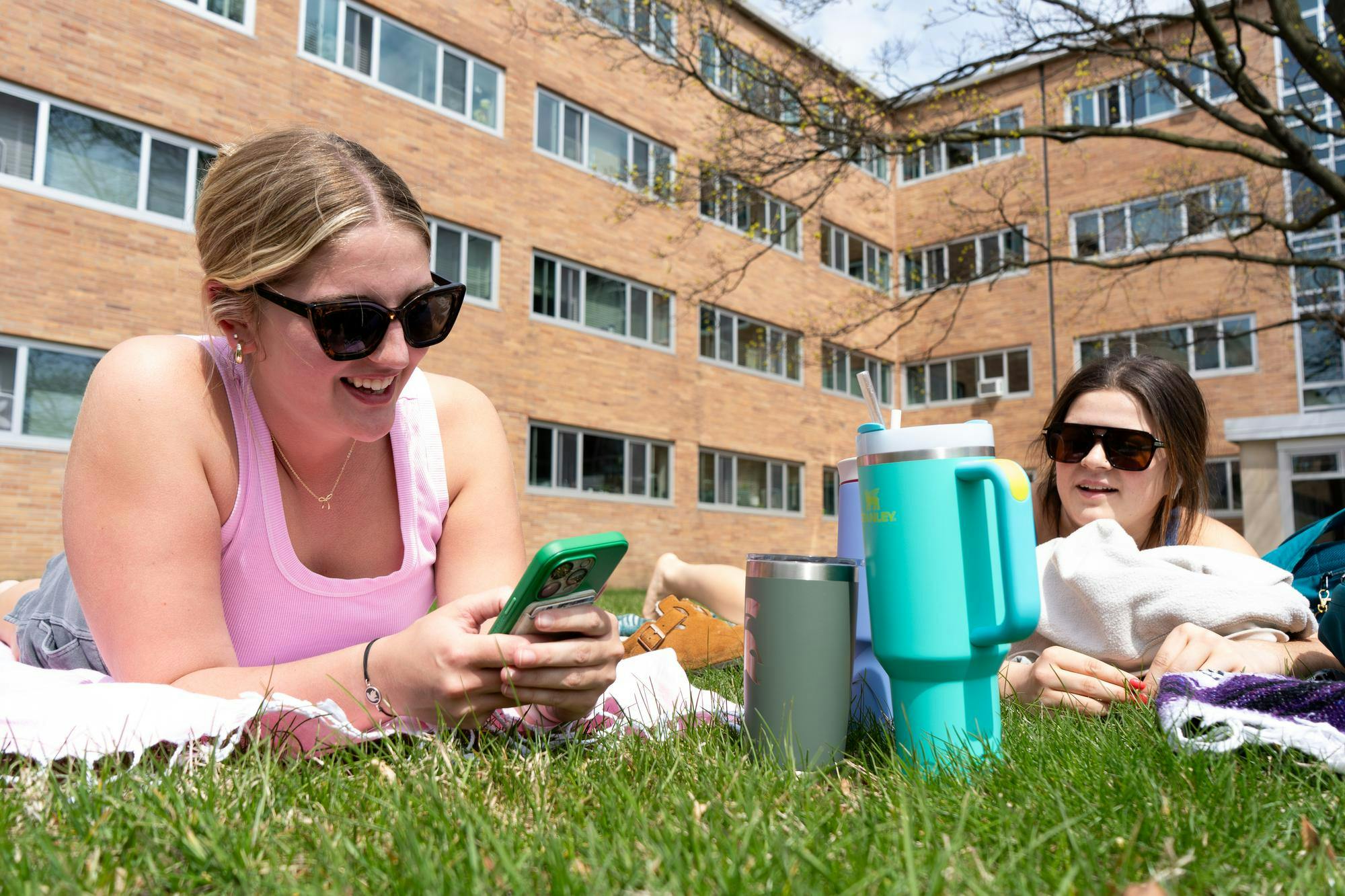The art of "bed rotting" is a common practice among students after the end of the semester, but it can cause more harm than good. Being chronically online has proved to be fatal for mental health.
A better alternative, community members find, is the outdoors.
Civil engineering freshman Emma Butkevicius believes in nature’s role in positively impacting mental health. During the summer months, Butkevicius goes on nature walks three times a week.
“It’s a gentle reminder to focus on the little things out there and not be so hard on yourself,” Butkevicius said.
Butkevicius mentioned that spending time in nature is also a nice way to remember that “the world is a beautiful place that should be taken care of." One such spot to enjoy nature on Michigan State University's campus is the Beal Botanical Garden.
Community and Sustainability Coordinator of Beal Botanical Garden Angelica Bajos said her role works on promoting well-being in the gardens. She works on the creation of educational programs focused on well-being and belongingness. She said that a focus of the Beal Garden is to show people that they are cared for, and that the garden is a place for them.
Bajos emphasized establishing a connection between the people and the environment, as creating a connection means a lasting involvement with the environment and can promote well-being. Her connection to nature has helped Bajos' mental health.
"When I think about gardening, like working in the soil, is that those microbes that are in the soil, they're actually helping boost your endorphins (and) also boosting your serotonin levels," Bajos said.
Students at MSU aren't utilizing the resources at the garden to the fullest, Bajos said. She encourages students to take some time to themselves in the garden.
"I think that everyone would benefit from slowing down a little bit and just taking their time through the garden, rather than just rushing through the garden to go to their next class or their next obligation," Bajos said.
Professor Katherine Alaimo conducts research on urban agriculture and community gardening, and looks into how mental health can be improved uniquely through nature. Her research found that gardening improved mental well-being, reduced stress and lowered anxiety. She pointed out that gardening was a "lens" to study the idea of nature being a calming resource for people.
Alaimo said the connection to nature and senses of responsibility and accomplishment were central to the mental health benefits.
"When people are out in nature, they feel a sense of peacefulness: they feel joy," Alaimo said. "(People) can really focus on it. (It) can be kind of meditative to watch the bees moving from plant to plant, or literally watching your plants grow, or watching the leaves sway in the wind. It's very relaxing."
What makes nature's way of improving mental health unique are the sensory elements completely distinctive to the environment.
Alaimo discussed the sensory components of nature: watching a plant grow while a bee buzzes by, touching a leaf or digging in the dirt, listening to the birds and engaging with the natural aromas of the environment. She said that nature "wakes up all your senses" in a calming way.
Whether it's in the botanical gardens, the beach, or just sitting outside in the lawn, spending time observing nature and taking in all of the sensory elements can help people look within themselves and become mindful.
Bajos said the Beal Garden is an open and inclusive space for not only students, but for anyone in the Greater Lansing area.
"It's a busy time, it's a busy campus," Bajos said. "But I feel like everyone could benefit (from) slowing down a little bit and like even just touching a leaf, connecting with (nature) a little bit more is great."
Support student media!
Please consider donating to The State News and help fund the future of journalism.
Discussion
Share and discuss “Connecting with nature has mental health benefits” on social media.







